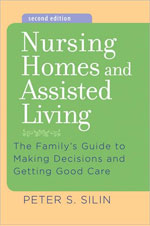Addictions and Older People: Services
The following is from the SWAP newsletter. They are a great agency that help a very vulnerable population. They are losing their funding, as the government continues to tell us that they are providing more services to the elderly.
For 26 years, SWAP (the Seniors Well Aware Program), has been serving adults 55 and older who face
the unique challenges of substancemisuse and abuse, social isolation, and elder abuse. We are proud to be
the only agency in Vancouver’s lower mainland providing addictions services to seniors who are unable to
leave their homes due to loss of mobility or other life situations (also known as “elderly shut-ins”). Many
of our clients rely heavily on their SWAP counselor to provide mental health support, connections to
community resources, and general improvements for their well being. We strive to promote the
environmental, spiritual, physical,social, and mental well being of the senior population. We also cater to
the LGTB population. Our team includes a volunteer Board of Directors, an Executive Director,
eight staff devoted to providing services in client’s homes and support groups, along with
Administration, Board and Resource Development support personnel. As a Registered Charity and nonprofit
society and we rely on core funding, membership fees and donations.
REDESIGNING SWAP
As of March 31, 2007 operations in Vancouver are changing with the loss of core funding from VCH and FHA
For the Vancouver area we have been largely funded by the Vancouver Coastal Health Authority
(VCH), and for the Burnaby, New Westminster, South Surrey and White Rock areas we have been
funded by the Fraser Health Authority (FHA). However, as of March 31, 2007 both VCH and FHA will no longer be providing core funding for our operations. As a result, SWAP will be forced to develop new funding strategies in order to continue providing services to seniors. We will strive, with your help, to design programs most needed by our clients and secure funding so that we can continue to support our clients.
With changes of this magnitude, it is more important than ever that SWAP’s clients, members, staff, the seniors’ community, and Board join forces to co-create its future.
PLEASE JOIN US ON FEBRUARY 22
HOW YOU CAN HELP SUPPORT SWAP
If you or a family member has benefited from the supportive services that SWAP has offered over the
last 26 years and you would like to give back, here are some areas to choose from:
• Join us on Feb. 22
• Help us to connect
with resources
• Write us a letter of
support containing
answers to our survey on
the next page
• Donate funds
• Volunteer your time
and ideas by participating
on our Board of Directors
• Volunteer on one of
our working Committees
• Nominate someone to
the Board of Directors
• Become a SWAP
member
Brainstorming Meeting: February 22 at 10 am
Thursday February 22 at 10 am (until 12 pm) Room 312, 1290 Hornby Street, Vancouver.
Please join us to learn about the new direction for our Vancouver operation, and share with us your ideas and
resources. We welcome clients, family members, SWAP members, and our community.
Please RSVP by calling 604-633-4230 or email: swap@123mail.org
SWAP news



